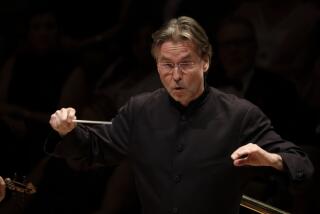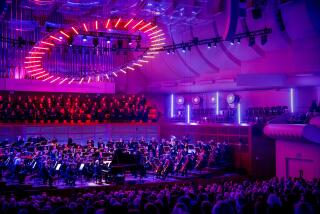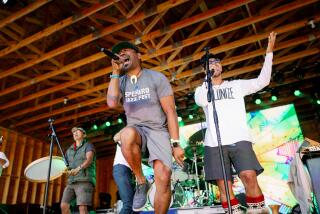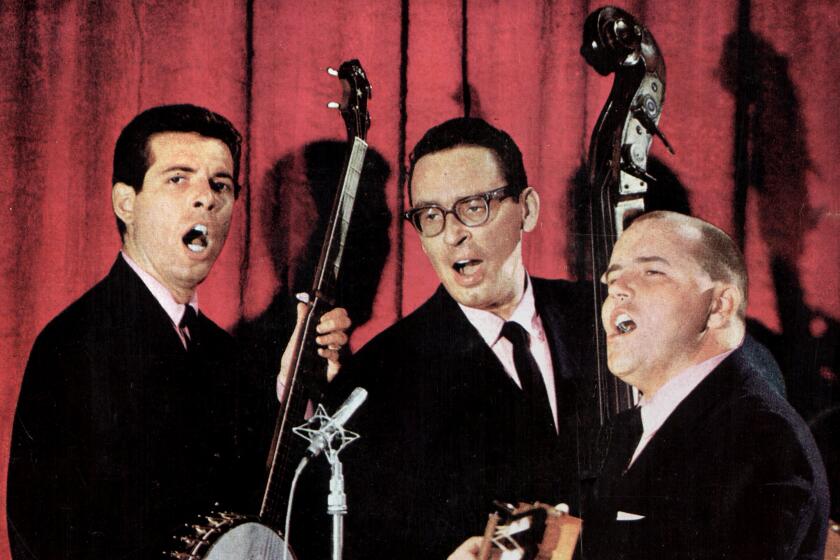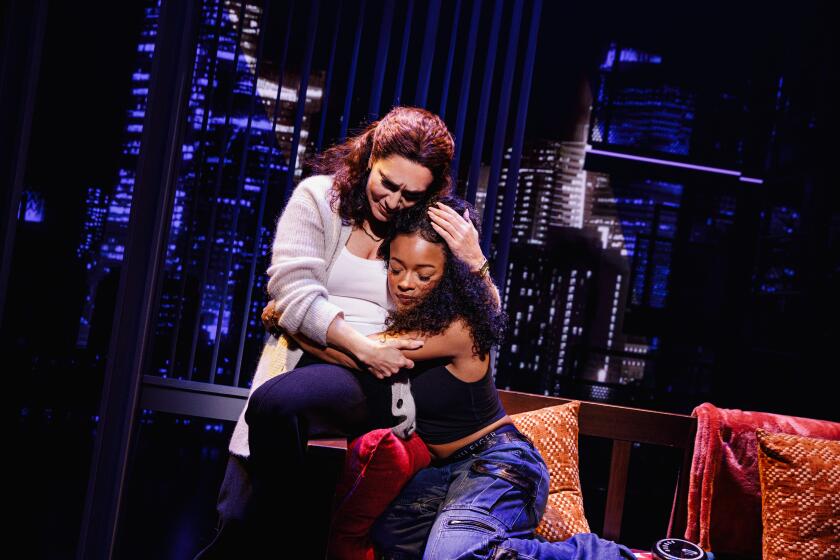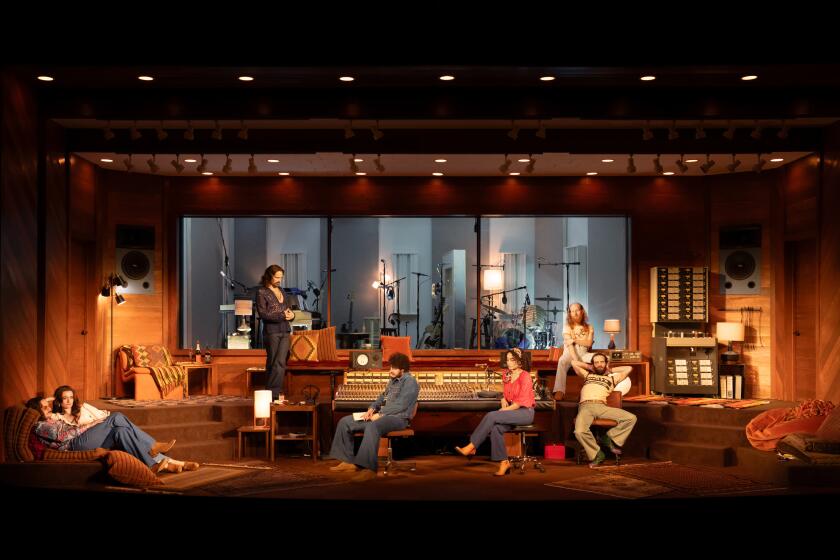Critic’s Notebook: At the Ojai Music Festival, Classical style takes a turn
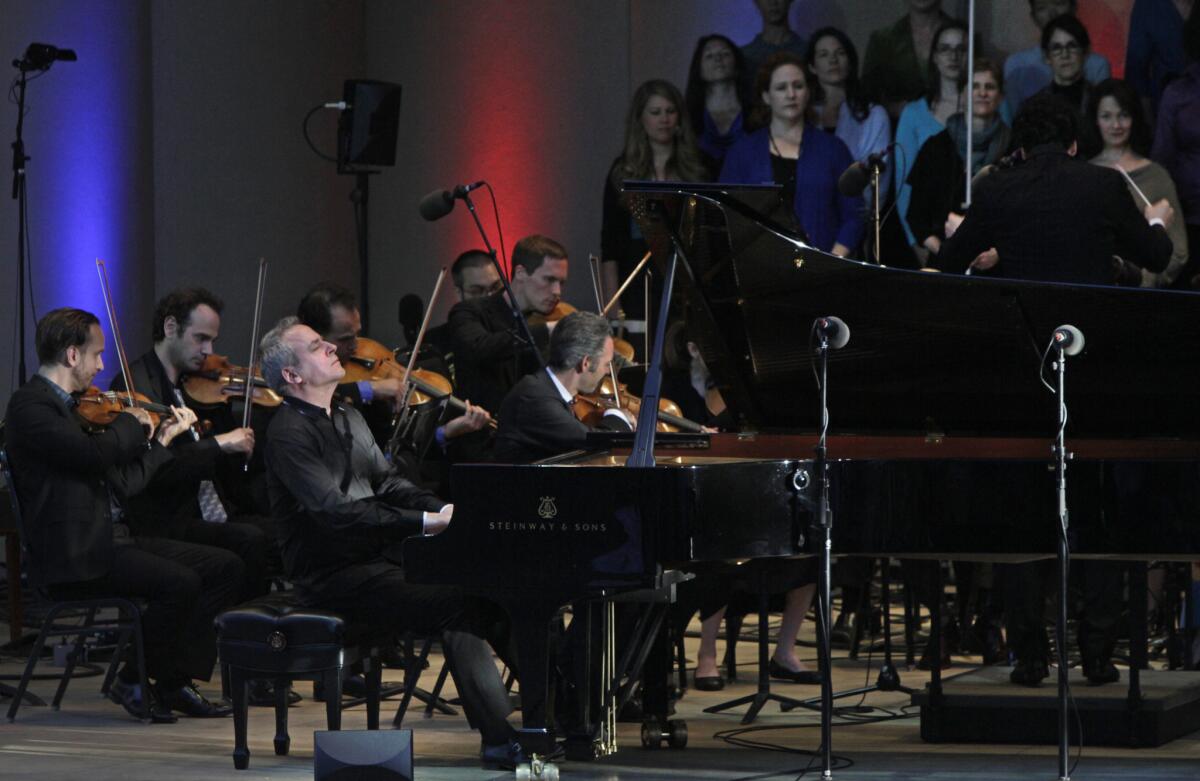
The town of Ojai, a place of wonder, is changing, as places of wonder do. It’s become a little fancier, worldlier, but only a little. It’s still unsullied Ojai, where the Pink Moment transforms dusk into a transient psychedelic experience.
The Ojai Music Festival is changing too. It’s grown, become a bit fancier and worldlier, as festivals of wonder seem to do.
This year’s festival, the 68th, ran Thursday through Sunday. Pianist Jeremy Denk, one of the field’s most deserving fast-rising stars, served as music director. He hosted the classics, more of them than typical for an idiosyncratic festival known for venturing far from the standard repertory.
Commonly played pieces by Bach, Haydn, Mozart, Beethoven, Schubert and Schumann were given pride of place. But the playing wasn’t common. Nor was the context, which essentially served to add its own Pink Moment colorization of classical traditions.
As already reported, the event of the festival was the Friday night premiere of Steven Stucky’s marvelous comic opera, “The Classical Style,” with a libretto by Denk that was improbably inspired by pianist Charles Rosen’s classic analytical study. The opera pokes delightful fun at Haydn, Mozart and Beethoven, but it also cunningly ponders why millions of us music lovers are drawn to live modern lives in the thrall of centuries-old music.
During a closing trio of the opera, the three composers sing: “We imagine ourselves able to revive the past through its art. For this illusion of reliving history, the style must be prevented from becoming truly alive once again.”
So where do we go from there? What is old, and what is new? What is liberation and what, despoilment? The rest of this Denkfest was a quirky consideration of those implied questions.
The Ojai Festival itself has expanded to the point that Ojai becomes no longer an environment to be absorbed but a place to be on the go. Saturday, the busiest day, offered concerts at sunrise, midday, early evening, evening, late night and past midnight. An afternoon screening of Peter Bergman’s “The Magic Flute” was also provided for those with little patience for a moment in glorious natural surroundings or a ramble though Bart’s Books. And nearly all the concerts are streamed live and then archived on the festival website.
The range of music was considerable, with the earliest work by Josquin des Prez from 1515. There were recent pieces by young composers Timo Andres and Andrew Norman. Jazz pianist Uri Caine reworked Mahler, Gershwin and Bach with his ensemble. The superb vocal quartet Hudson Shad was on hand. The scrappy house orchestra was the Knights from Brooklyn, along with its affiliated string quartet, Brooklyn Rider.
Morton Feldman’s unearthly “Rothko Chapel,” conducted by Robert Spano in a near midnight chill under a full moon, was a highlight despite a wan solo viola. At the other extreme was one of Mozart’s smutty scatological canons lustily sung by Hudson Shad the next morning. Storm Large was soloist in Kurt Weill’s “Seven Deadly Sins,” giving the gleeful impression of being better attuned to the subject matter than well tuned.
Although it was Denk’s festival, he remained above much of the messy fray he had set into motion along with the festival’s artistic director, Thomas W. Morris.
The pianist opened the festival Thursday night by meeting the sylvan setting surrounding Libbey Bowl with what he called a mix tape of slight Schubert dances with numbers from Leos Janácek’s piano cycle, “On the Overgrown Path.”
In the circumstance of moving back and forth between polite early 18th century Viennese court dances and startling evocations of the Czech countryside a century later, Schubert started to gain an edge and Janácek lose a little of his. The middle ground was unsettling, a new landscape.
Denk helped close the festival Sunday evening by playing the first two books of Hungarian avant-gardist György Ligeti’s late 20th century etudes, with their startling metallic sound effects and fabulously difficult rhythms. Denk’s virtuosity is a thrill, killing and enlivening tradition at the same instant.
Denk is devoted to Charles Ives, and he devoted Saturday morning to Ives’ four violin sonatas, which he played with violinist Jennifer Frautschi. In these early 20th century scores, Ives transforms old hymn tunes into excitedly original elicitations of messy modern life. The male quartet Hudson Shad sang the hymns for context. Denk and Frautschi provided noble classical grandeur.
But transformations of the classical style weren’t always on such high grounds. Caine, who had once created revelations of Mahlerian jazz excess, has gotten stale, and his band is no longer a sensation. The Knights, once a rough ensemble, remains rough. In performances led by the group’s co-founder, Eric Jacobsen, there was little atmosphere in Ives’ “Three Pieces in New England” on Saturday night, and a performance of Mozart’s “Jupiter” Symphony on Sunday morning verged on the amateurish.
Storm Large and the band seemed to hit it off in Weill’s “Seven Deadly Sins,” but when Andres played his “re-composition” of Mozart’s “Coronation” Concerto, adding a left-hand part to the piano solo in a lively non-Mozartean style, the Knights often veered the wrong way.
The festival ended with Beethoven’s Choral Fantasy featuring Denk, the Ojai Festival Singers and the Knights. It opens with a long piano solo, which Beethoven had originally improvised and which Denk made sound spontaneous, not reliving history but partaking of it. He did not look pleased when the Knights entered flabbily.
But it was a lesson in context. What the Knights and Brooklyn Rider (which played Haydn’s “Rider” Quartet as a curtain-raiser for the opera Friday) do offer is a contemporary sound and approach. The players emphasize the beat, four-bar phrasing and instant gratification climaxes in the manner of much 21st century popular music. Every moment is a Pink Moment.
The Knights advertises itself with a Los Angeles Times quote, stating that these musicians “are at the forefront of ‘the future of classical music in America.’ ”
What I wrote in 2010, in a decidedly mixed CD review, is that “if we are going to talk about the future of classical music in America, sooner or later the Knights will come up.”
Denk’s opera libretto makes clear, no one owns the Classical style any longer. But in 2014, not only Classical style but all else is clearly in the eye — and ear — of the beholder.
More to Read
The biggest entertainment stories
Get our big stories about Hollywood, film, television, music, arts, culture and more right in your inbox as soon as they publish.
You may occasionally receive promotional content from the Los Angeles Times.
